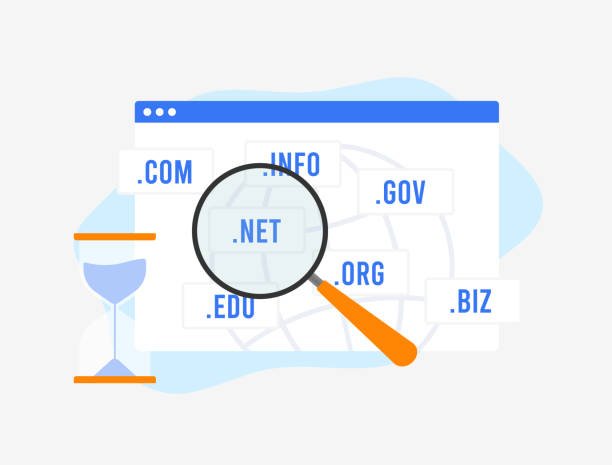
How Domain Authority Shapes Your SEO Destiny
Hey there, digital enthusiasts! Ever wondered what makes some websites rank high while others lag behind in search results?
The answer lies in Domain Authority (DA), a crucial metric for SEO success. In this article, we'll explore how DA shapes your online presence and unlocks search engine potential. Let's demystify SEO and unleash the power of Domain Authority!
DA, developed by Moz, predicts a website's ranking on SERPs. It's a competitive score that reflects credibility and influence. Backlinks and content quality are key factors influencing DA. Higher DA means better search rankings, increased traffic, and visibility.
To boost DA, focus on SEO optimization, user experience, mobile responsiveness, and compelling content. Quality backlinks from reputable sites also play a vital role.
Remember, Domain Authority isn't built overnight; it requires patience and ethical practices. Avoid Black Hat SEO techniques that risk penalties and harm your reputation.
In summary, Domain Authority guides your SEO journey. Embrace its power to elevate your website and achieve lasting success. Let's unlock the potential of Domain Authority together!
What is Domain Authority?

Before we dive into the nitty-gritty, let's establish what Domain Authority actually is. Developed by the SEO gurus at Moz, Domain Authority is a search engine ranking score that predicts how well a website will rank on search engine result pages (SERPs).
It's measured on a scale from 1 to 100, with higher scores indicating a greater ability to rank. Think of it as a competitive score that determines your website's credibility and influence in the digital landscape.
Unraveling the Components of Domain Authority
Now that we know the essence of Domain Authority, it's time to unravel its components. Several key factors impact your website's DA, including website age, size, and overall trustworthiness. But the two primary influencers are:
Backlinks: These are the digital highways that lead users to your website from other reputable sites. The more quality backlinks you have, the better your chances of elevating your DA.
Content Quality: Engaging, relevant, and valuable content attracts not only readers but also search engines. Crafting top-notch content significantly contributes to boosting your Domain Authority.
Why Domain Authority Matters
You might wonder, "Why should I care about Domain Authority?"
Well, imagine this: You've put your heart and soul into creating an incredible website, but it's buried on the 10th page of search results. Frustrating, right? That's where Domain Authority comes in.
A higher DA opens doors to higher search rankings, increased organic traffic, and greater visibility. It's the golden ticket to get your website on the radar of your target audience.
Building Blocks for Enhancing Domain Authority
Now that we've grasped the significance of Domain Authority, let's delve into the essential building blocks that pave the way to a robust DA:
SEO Optimization: One of the fundamental pillars of improving Domain Authority is through meticulous SEO optimization. This entails fine-tuning various aspects of your website to make it more search engine-friendly.
Start by ensuring your website's structure is well-organized and easily navigable for both users and search engine bots. Properly labeled headings, logical URLs, and an XML sitemap contribute to a better understanding of your site's content.
Next, pay attention to metadata – the title tags and meta descriptions that appear in search results. Craft compelling and relevant metadata for each page to entice users to click through to your site. Strategic use of keywords in these elements can also enhance your chances of ranking higher.
Content optimization is equally crucial. Create high-quality, valuable content that aligns with users' search intent. Incorporate relevant keywords naturally into your content to boost its visibility on search engines.
User Experience (UX): Providing a seamless and enjoyable user experience is vital for both your visitors and Domain Authority. A user-friendly website with intuitive navigation ensures that visitors can easily find the information they seek. Search engines appreciate sites that prioritize user experience, as this indicates that your content is valuable and relevant.
To improve UX, optimize your website's layout and design, ensuring it's visually appealing and easy to navigate across various devices. Implement clear calls-to-action (CTAs) to guide users through your site and encourage engagement. The longer users stay on your site and explore its pages, the better signal it sends to search engines about its authority and relevance.
Mobile Responsiveness: In an era dominated by smartphones and mobile devices, having a mobile-responsive website is no longer optional – it's an absolute necessity for achieving a higher Domain Authority.
Mobile responsiveness refers to the ability of your website to adapt and function seamlessly on different screen sizes, be it a smartphone, tablet, or desktop. Search engines, including Google, prioritize mobile-friendly websites in their rankings.
A website that is mobile-responsive provides a better user experience, leading to higher engagement and lower bounce rates. Consequently, search engines recognize such sites as more user-friendly and, thus, reward them with better rankings.
The Role of Content in Domain Authority
Content is king, they say, and it holds true for Domain Authority too. Compelling content attracts visitors, encourages sharing, and earns valuable backlinks. By delivering consistent, valuable content, you can establish authority in your niche and bolster your website's credibility.
Backlinks: The Backbone of Domain Authority
Imagine backlinks as digital votes of confidence for your website. Search engines interpret backlinks from authoritative sources as a sign of your website's trustworthiness. Earning quality backlinks from reputable websites can catapult your Domain Authority and shoot your site to the top of the rankings.
Page Load Speed and its Impact on Domain Authority (DA)
Have you ever experienced the exasperation of visiting a website that seems to take an eternity to load?
It's a common frustration shared by many users, and it can have far-reaching consequences beyond mere impatience. In fact, the speed at which your website's pages load not only drives away potential users but also directly influences your website's Domain Authority (DA).
Understanding this crucial relationship between page load speed and DA can significantly impact your website's overall performance.
Search engines, especially Google, consider page load speed as a critical factor in determining the quality of user experience. A website that loads quickly provides a smooth and seamless browsing experience, keeping visitors engaged and satisfied.
Conversely, a slow-loading website can lead to higher bounce rates, where users abandon your site before it even fully loads. This negative user behavior sends negative signals to search engines, indicating that your site may not be delivering the best user experience.

The consequences of slow page load speed are twofold:
User Experience and Retention: Users have increasingly high expectations for speed and efficiency when browsing the internet. If your website fails to meet these expectations, visitors may become frustrated and abandon your site, likely never to return.
This negative user experience harms your website's reputation and makes it less likely for users to engage with your content or explore further, ultimately impacting your website's Domain Authority.
Search Engine Ranking: Search engines, particularly Google, prioritize delivering the best possible results to their users. Websites that load quickly and offer a positive user experience are more likely to be favored by search engines and receive higher rankings in search results.
On the other hand, websites with slow page load speeds are penalized in rankings, as they are deemed less user-friendly and relevant.
Optimizing your website for fast page load speeds is, therefore, a critical step in improving your Domain Authority. Here are some strategies to achieve faster load times:
#1. Image Optimization: Compress and optimize images to reduce their file size without compromising quality. Large image files can significantly slow down page load times.
#2. Caching: Implement browser caching to store certain elements of your website, like images and CSS, on users' devices. This way, when users revisit your site, the elements don't need to be reloaded, leading to faster load times.
#3. Minify Code: Minimizing HTML, CSS, and JavaScript files by removing unnecessary spaces and characters reduces the file size and accelerates load times.
#4. Content Delivery Network (CDN): Utilize a CDN to distribute your website's static files across multiple servers worldwide. This enables users to access the files from a server closest to their location, reducing latency and improving load times.
Page Load Speed and its Impact on DA
Slow page load speed negatively impacts user experience and Domain Authority (DA). Users get frustrated and leave, signaling search engines about poor performance. Optimize by compressing images, caching, and using a CDN. Fast load times improve user engagement, benefiting DA and overall website success.
Social Signals and Domain Authority
In the age of social media dominance, it's no surprise that social signals influence Domain Authority. Engaging content that resonates with your audience leads to more shares and interactions, signaling search engines about your website's popularity.
Dealing with Domain Authority Fluctuations:
Domain Authority is a dynamic metric that is subject to fluctuations over time. Various factors contribute to these changes, including algorithm updates by search engines and alterations in your website's backlink profile. As a website owner or digital enthusiast, it's essential to understand and navigate these fluctuations effectively.
Fluctuations in Domain Authority are normal, and it's crucial to approach them with a steady and proactive mindset. Avoid impulsive reactions and focus on maintaining a healthy website that consistently delivers value to its users.
By doing so, you can navigate the fluctuations and position your website for long-term success in the competitive digital landscape.
Domain Authority vs. Page Authority
It's important to distinguish between Domain Authority and Page Authority. While Domain Authority measures your overall website's strength, Page Authority focuses on individual pages. Both are essential metrics to track and improve, but they serve different purposes.
Conclusion
In conclusion, Domain Authority serves as a crucial pillar in your SEO strategy. It's not merely a number but a reflection of your website's credibility, trustworthiness, and influence.
By focusing on building high-quality content, earning valuable backlinks, and optimizing user experience, you can steadily enhance your Domain Authority and pave the way for SEO success.
Remember, SEO is a journey, not a destination. It requires continuous efforts, adaptability, and patience. Embrace the power of Domain Authority, and you'll witness your website rise through the ranks, attracting more visitors and engaging your target audience.
Now, let's address some common questions that often arise regarding Domain Authority and its impact on SEO:
FAQs about Domain Authority and SEO
1. How does Domain Authority affect my website's search engine ranking?
Domain Authority directly influences your website's search engine ranking. A higher DA score indicates a stronger, more authoritative website, which in turn increases your chances of ranking higher on search engine result pages.
2. Can I improve my Domain Authority quickly?
Improving Domain Authority is a gradual process that requires time and effort. While there are no shortcuts, focusing on creating valuable content, earning reputable backlinks, and optimizing your website's performance can expedite the process.
3. Are there any tools to check my Domain Authority?
Yes, several tools are available online that can help you check your website's Domain Authority. Some popular ones include Moz's Open Site Explorer, Ahrefs, and SEMrush.
4. Can a website with low Domain Authority still rank high on search engines?
Yes, it is possible for a website with low Domain Authority to rank high on search engines, especially for less competitive keywords. However, having a higher Domain Authority significantly improves your overall chances of ranking well.
5. Can Domain Authority decrease over time?
Yes, Domain Authority can fluctuate over time due to various factors, including changes in your backlink profile and search engine algorithm updates. By consistently following best SEO practices, you can maintain or even improve your Domain Authority.
Remember, Domain Authority is just one piece of the SEO puzzle. While it's crucial to focus on improving it, don't forget to create valuable, user-centric content and maintain a well-optimized website. By combining these efforts, you'll set your SEO destiny on the path to success.
So, there you have it! Unlock the potential of Domain Authority and watch your website thrive in the vast digital landscape. Happy ranking!